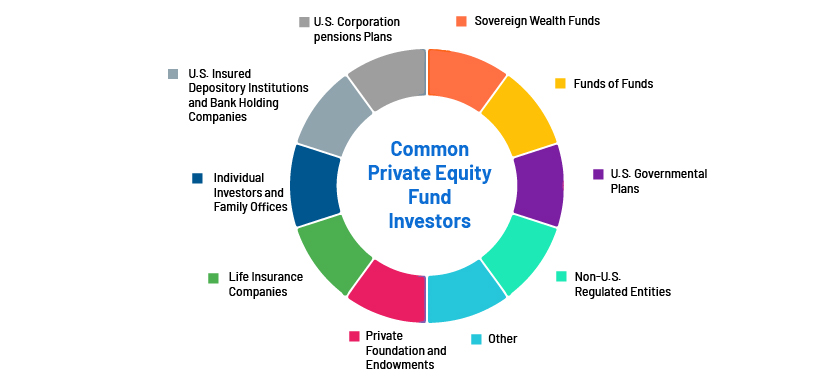Published on June 5, 2024 by Shawaf Ali Baig
Introduction
Investment advisors’ private funds have steadily increased more than 3x in the past decade. Private funds play an important role in retirement planning, even though they are available only to institutional investors and high-net-worth individuals. To safeguard these investors’ rights and protect them from risk, the US Securities and Exchange Commission (SEC) adopted new rules and amendments to the Investment Advisers Act of 1940 on 23 August 2023.
The new rules are designed to safeguard private fund investors by encouraging transparency, competition, efficiency and capital formation to enhance the regulation of private fund advisors. SEC Chairman Gary Gensler is quoted as saying that “Private funds and their advisers play an important role in nearly every sector of the capital markets, so they will assist in promoting fair competition while being consistent with our mission and Congressional mandate.
A critical part of managing private funds is ensuring transparency and accountability, particularly in portfolio monitoring in private equity, where accurate reporting and oversight can drive better investment outcomes."
Advantages of private funds
Sources of large funds: Private equity funds provide scope for significant capital; emerging businesses can access substantial seed capital through private equity investments.
Untapped potential: Most investors are not very knowledgeable about the private equity market.
Venture capital: Private equity funds can be used to finance company operations in their early stages, as they often lack access to traditional financing and financial markets. Venture capital is an excellent source of funds for startups with high growth potential.
Growth capital: Established corporates can use private equity to expand operations, enter new markets or fund major acquisitions. This type of investment is typically smaller, as such corporates are already profitable enterprises.
Leveraged buyouts: Private equity firms invest capital in larger businesses using extra leverage, often as shareholding. Leveraged buyouts aim to generate substantial returns. The investible amount is larger than venture capital. After creating value, the private equity firm may exit the organisation by diluting its stake.
Turnaround from distress: Private equity can be a formidable source of funds when a company is unable to pay off existing debt. Coupled with turnaround strategies, such funds can stabilise the distressed company’s balance sheet.
High returns: Private equity offers the potential for attractive returns due to the number of incentives presented.

Source: Private Equity Fund Structure: Partners, Fees & Pay, How it Works (dealroom.net)
The following are the rules proposed by the SEC:
1. Transparency and reporting:
-
To ensure transparency and accurate reporting, the SEC suggests adopting a standardised performance-measurement methodology that introduces a consistent calculating method.
-
Private fund advisors registered with the SEC are required to provide quarterly statements to investors. The statements must include detailed information on fund fees, expenses and performance.
-
Leveraging technology and automation would provide the accuracy and efficiency required of performance reporting.
-
Additionally, private fund advisors must obtain and distribute to investors an annual financial statement audit report on each private fund they advise.
2. Investor protection:
-
The new rules prohibit private fund advisors from providing preferential treatment to certain investors regarding redemptions and information if such treatment would negatively impact other investors.
-
However, there is a disclosure-based exception for other cases of preferential treatment, where advisors must provide specified disclosure on preferential terms.
3. Legacy Status Provisions:
-
To avoid the need to renegotiate governing agreements for existing funds, the SEC has adopted legacy status provisions applicable to certain restricted activities and preferential treatment provisions.
4. Compliance dates:
-
The final rules will be operational 60 days after publication in the federal register. The compliance date for quarterly statement and private fund advisor rules is 18 months after the effective date, and the compliance date for advisor-led secondaries, preferential treatment and restricted activities rules is 12 months after the effective date for private fund advisors with USD1.5bn or more in private fund assets and 18 months after the effective date for private fund advisors with less than USD1.5bn in private fund assets. The effective date of the rule is 13 November 2023.
Conclusion
The new rule should help investors confidently navigate highly risky funds and make informed financial decisions, as there is likely to be minimal chance of manipulation, with investment advisors and private fund companies now required to be more transparent in disclosure.
How Acuity Knowledge Partners can help
We help clients capitalise on opportunities in primary fund markets by screening fund managers by fund type, strategy and transaction preference, and by providing detailed due diligence information and memorandums.
We work as a pure extension of a client’s onshore team, providing end-to-end support across the investment lifecycle. Our services include fund screening, fund benchmarking, manager research, manager evaluation, fund and portfolio valuation, portfolio monitoring, customised research and fund marketing. We also conduct due diligence by creating diligence frameworks and conducting research, ensuring faster turnaround on deal decisions. With our focused set of offerings in the areas of corporate compliance, forensic compliance, and compliance testing and monitoring programmes, we conduct reviews based on the latest guidelines and help clients prepare for regulator assessments.
Sources:
-
SEC.gov | SEC Enhances the Regulation of Private Fund Advisers
-
SEC.gov | Private Fund Advisers; Documentation of Registered Investment Adviser Compliance Reviews
-
Private Equity Fund Structure: Partners, Fees & Pay, How it Works (dealroom.net)
Tags:
What's your view?
About the Author
Shawaf Ali Baig has overall above 5 years of experience in the financial services industry. Prior to joining Acuity Knowledge Partners, he was an analyst at State Street Global Advisors. His expertise spans marketing compliance, corporate compliance, policy monitoring, code of ethics and personal account dealing. Part of the Central Compliance team at Acuity, Shawaf is responsible for reviewing marketing materials and financial promotions. He holds a Bachelor of Commerce from Jain University, Bengaluru.
Like the way we think?
Next time we post something new, we'll send it to your inbox










